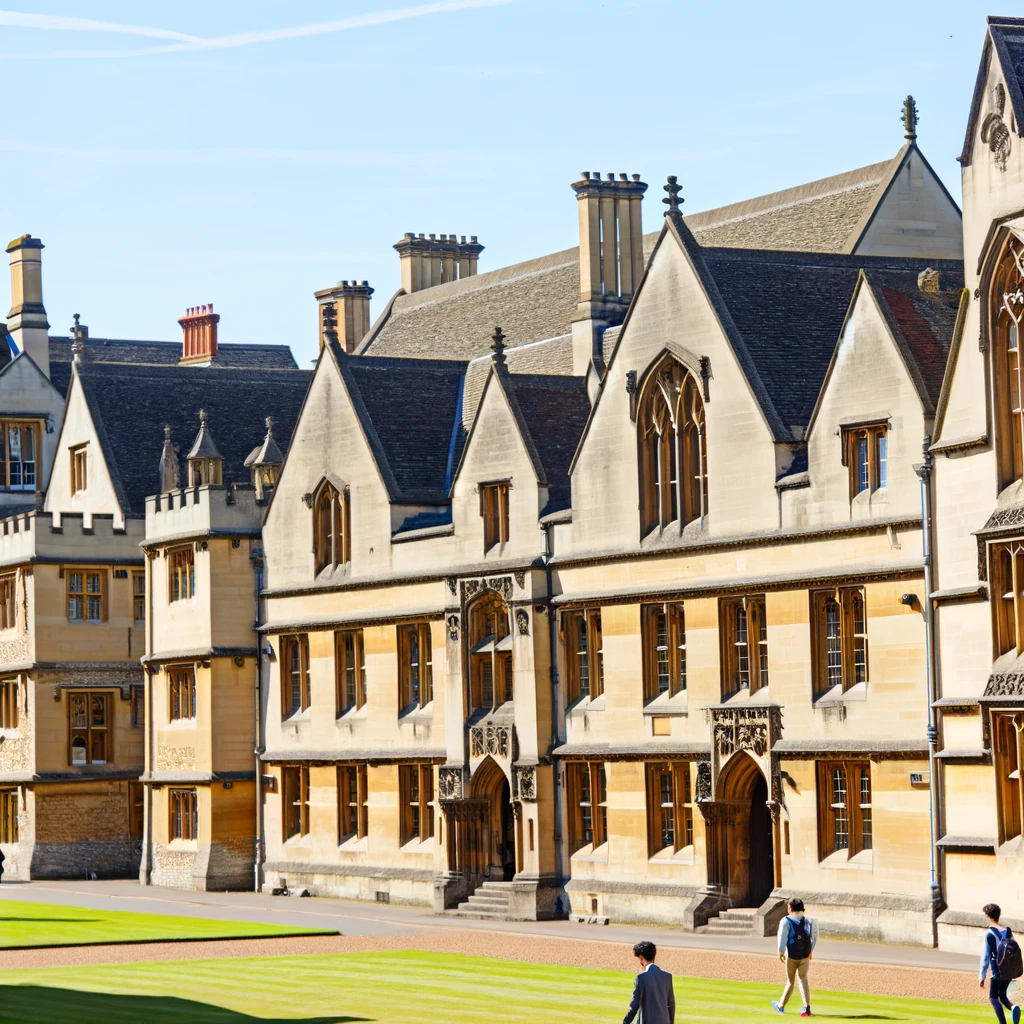What is the Education System in the UK like?
Education system in the UK: Whether you’re a student, parent, or just curious, we’ll explain. We’ll cover schooling stages, age ranges, and types of schools.
We’ll dive into what each stage involves, giving a clear picture of expectations as you progress.
Transitioning from primary to secondary school, exploring further education, or considering university? We’ve got you covered with all the information you need.
Our goal is to help you make informed decisions about your education.

Early Years of Education System in the UK
Early years education marks the beginning of a child’s educational journey in the UK. Spanning from birth to the age of 5.
- Age Range – Early years education encompasses children from birth to 5 years old, laying the groundwork for future learning.
- Free Nursery Education – In England, children aged three and four receive 15 hours of free nursery education per week. This provision aims to ensure that all children have access to quality early learning experiences, setting them up for success later in life.
- Variety of Programs – Wales, Scotland, and Northern Ireland also offer early years education through a range of programs and initiatives tailored to meet the needs of young learners. These may include maintained schools, voluntary playgroups, private nurseries, or childminders approved to provide education.
- Foundation Stage Curriculum – Across the UK, early years education follows the Foundation Stage curriculum. It focuses on promoting holistic development. It covers areas like communication, physical development, personal, social, and emotional development. Also, literacy, mathematics, understanding the world, and expressive arts and design are included.
- Assessment – At the end of the academic year when children turn 5, educators conduct a statutory assessment test called The Early Years Foundation Stage Profile (EYFSP). It evaluates each child’s development and learning achievements, providing valuable insights into their progress.

Early years education plays a vital role in shaping children’s attitudes
By providing a nurturing and stimulating environment, educators aim to ignite a lifelong passion for learning in young minds.
How Many Schools are in the UK
The educational landscape of the United Kingdom boasts a diverse array of schools catering to the needs of students across different regions and age groups. According to the latest data, a total of 32,163 schools are spread across England, Wales, Scotland, and Northern Ireland.
Breaking down this figure reveals a varied distribution of educational institutions. In England there are 24,413 schools, encompassing nurseries, primary, secondary, independent, special, and pupil referral units (PRUs). Wales follows with 1,553 schools, including nursery, primary, middle, secondary, independent, and special schools. Scotland contributes 5,052 schools to the UK’s educational landscape, emphasising early learning centres, primary, secondary, and special education. Lastly, Northern Ireland hosts 1,123 schools, comprising nursery, primary, secondary, special, and independent institutions.
This diverse network of schools underscores the commitment of the UK to providing accessible and inclusive education to its population.
With ongoing research and collaboration initiatives, such as those conducted by organisations like the British Educational Suppliers Association (BESA)
Efforts continue to ensure that schools receive the necessary support and resources to foster a conducive learning environment for students nationwide.
Primary Education System in the UK
Primary education is an important step in your child’s educational journey, providing essential building blocks for future academic success. This stage covers nursery, infant, and junior stages, laying a strong foundation for further learning.
School age ranges
Primary education caters to children typically aged 4 to 11 years old. School years and ages in the UK are presented in next phases.
Primary school age in England generally accommodate children from 4 to 11. These stages comprise nursery (under 5), infant (5 to 7 or 8), and junior (up to 11 or 12). Some primary schools may also include a nursery or children’s center to cater to younger children.
Wales
The Foundation Phase enriches primary education in Wales. Holistic approach that combines Early Years. Ages 3 to 5 and Key Stage 1 ages 5 to 7 of the National Curriculum.
This integrated approach focuses on experiential learning, outdoor play, and developing essential skills across various areas of development.
Scotland and Northern Ireland
Primary education typically spans from ages 4-5 to 11-12. While there may be variations in terminology and administrative structures, the overarching goal remains the same
to provide a nurturing and supportive learning environment where children can thrive academically, socially, and emotionally.

Across the UK
A comprehensive curriculum guides primary education, covering core subjects such as English, mathematics, science, and humanities.
Alongside opportunities for creative expression, physical activity, and personal development.
Assessment methods vary but often include teacher evaluations, standardised tests, and ongoing observations of children’s progress.
Transition to Secondary School
At the end of primary education –
children transition to secondary school, equipped with foundational knowledge and skills to embark on the next phase of their educational journey.
Primary education plays a crucial role in shaping children’s attitudes towards learning, fostering curiosity, resilience, and a lifelong passion for discovery.
By providing a supportive and enriching environment, primary schools set the stage for future academic achievement and personal growth.
Secondary Education
building upon the foundations laid during primary school and preparing them for further study or entry into the workforce. This phase typically begins at age 11 or 12 and extends until age 16 or 18.
- Variety of Schools in England – may take place in various types of schools, including comprehensive schools, grammar schools, and academies. Comprehensive schools are non-selective institutions that welcome students of all abilities. While grammar schools traditionally admit students based on academic aptitude and performance in entrance exams.
- GCSEs – in the UK culminates in examinations such as the General Certificate of Secondary Education (GCSE). GCSEs, typically taken at age 16, assess students’ knowledge and skills across a wide range of subjects.
- A-Levels – usually undertaken in the final two years of secondary school, offer greater specialisation. Depth study in specific subjects, providing a pathway to higher education or employment.
- Comprehensive Education in Scotland, Wales, and Northern Ireland – Predominantly comprehensive in nature, with schools catering to students of all abilities and backgrounds. While the terminology and assessment methods may differ. The overarching goal remains the same. Provide a broad and balanced curriculum that equips students with the knowledge, skills, and qualifications needed for success in further study or the workplace.
- Diverse Pathways – Education System in the UK offers diverse pathways to success. These include apprenticeships, vocational qualifications, and work-based learning opportunities. These pathways cater to individual interests, talents, and aspirations. They ensure every young person fulfils their potential and contributes to society positively.
- Preparation for Further Study or Employment – It plays a crucial role in preparing students for the next stage. Whether pursuing higher education qualifications, vocational training, or entering the workforce directly, students benefit. They benefit from a rigorous and engaging curriculum. This curriculum fosters critical thinking, creativity, and personal development.

The UK’s secondary education commits to excellence, inclusivity, and innovation, equipping students with the skills and confidence to navigate an ever-changing world and make meaningful contributions to their communities and beyond.
Further Education System in the UK
After completing secondary school, students in the UK have the option to pursue further education FE, which encompasses a wide range of non-compulsory educational opportunities tailored to their interests, career goals, and learning preferences.
From vocational courses to training programs, Further Education System in the UK equips individuals with the skills, knowledge, and qualifications needed to succeed in their chosen fields and advance their personal and professional development.
Non-Compulsory Education
Unlike primary and secondary education, further education is not mandatory. Typically undertaken by individuals aged 16 and above who wish to enhance their qualifications or acquire new skills relevant to their career aspirations.
Further Education System in the UK offers a diverse array of learning pathways, including vocational courses, apprenticeships, work-based training programs, and adult/community learning initiatives.
These pathways cater to a broad spectrum of interests and abilities, providing individuals with opportunities to explore new subjects, gain practical experience, and prepare for employment or higher education.
Various educational institutions deliver FE Colleges and Institutions, including further education FE colleges, work-based learning providers, and adult and community learning centres.
Dedicated to delivering a wide range of academic and vocational courses, often in partnership with employers and industry experts, to meet the needs of local communities and the wider economy.
Vocational courses offered in further education cover a diverse range of industries and sectors, from construction and engineering to healthcare and digital technology. These courses are designed to provide students with hands-on experience, practical skills, and industry-recognised qualifications that are directly relevant to the workplace.

Education System in the UK offers Work-based Learning Programs
Apprenticeships, offer individuals the opportunity to combine on-the-job training with classroom-based instruction, allowing them to earn a wage while gaining valuable experience and qualifications.
These programs are often developed in collaboration with employers to ensure that apprentices acquire the skills and competencies needed in the workforce.
Adult and community learning initiatives provide opportunities for lifelong learning and personal enrichment, catering to individuals of all ages and backgrounds. These programs offer a wide range of courses and activities, including leisure and hobby classes, skills workshops, and adult literacy and numeracy courses, enabling individuals to pursue their interests, develop new talents, and engage with their communities.
Further education plays a vital role in empowering individuals to unlock their full potential. Whether seeking to enter the workforce, progress in their current roles, or pursue higher education qualifications. Further education offers a pathway to success and fulfillment for learners of all ages and backgrounds.
Higher Education System in the UK
Higher education in the UK comprises advanced-level courses beyond secondary education, including undergraduate and postgraduate degrees. These programs are offered by universities and higher education Higher Education institutions across the country. Providing students with diverse academic and professional opportunities.
Advanced-Level Courses – Higher education encompasses a variety of academic and vocational courses that are typically pursued after completing secondary education. These courses include undergraduate degrees, such as bachelor’s degrees, and postgraduate degrees, including master’s and doctoral programs.
Universities and HE Institutions – Higher education in the UK is delivered by universities and other HE institutions, which offer a wide range of courses and qualifications tailored to the needs and interests of students. Universities are renowned for their academic excellence and research-led teaching, providing students with access to world-class facilities and resources.

Higher education opens doors to a wealth of opportunities, equipping individuals with the knowledge, skills, and qualifications needed to succeed in their chosen careers and make meaningful contributions to society. Whether pursuing a bachelor’s degree to kick-start their career or undertaking postgraduate study to specialise in a particular field, higher education empowers individuals to achieve their academic and professional aspirations.
Summing up Education System in the UK
Navigating the UK education system can feel like tackling a mase, but fear not! Armed with this comprehensive guide, you’re now equipped to conquer it with ease. Whether you’re a curious student, a supportive parent, or a dedicated educator, understanding how the UK school system operates is the first step towards academic success.
Keep an eye out for more enlightening content on the UK education system and school years in the UK. Remember, education opens doors to endless opportunities, and we’re here to guide you on your journey to success!
Yet, you are not alone on this journey, remember there’s help out there. Edumentors is an online tutoring platform where students can find support in their subjects on every level of their educational journey. Top tutors from UK universities will help you with prepartion and also share their tips and experiences. With their help, students can turn tough challenges into achievable goals, boosting their understanding and confidence.
Embrace the power of knowledge, and let the UK education system be your guiding light towards a brighter future!









